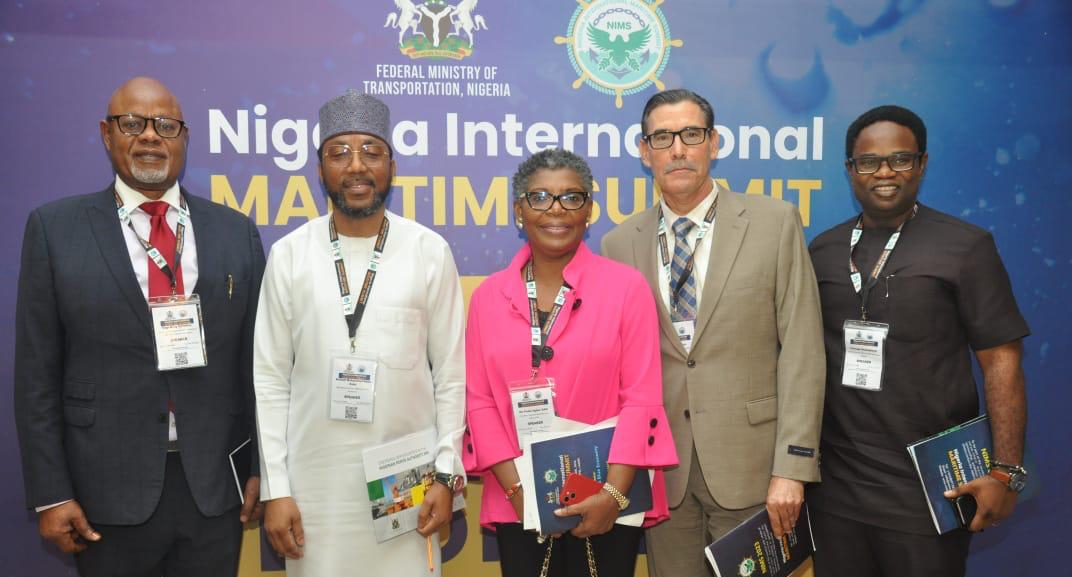The Chief Financial Officer of APM Terminals Nigeria, Courage Obadagbonyi said Nigeria has great tax laws that incentivize investment.
Speaking as a panelist during a session on ‘Financing Maritime Assets – Ports and Shipyards’ at the just concluded Nigeria International Maritime Summit (NIMS) 2022, Obadagbonyi said, “I am of the school of thought that funding of viable infrastructural projects is not an issue in terms of availability of cash.
‘There is a lot of private equity and multilateral funding available if the projects are well positioned and investors have line of sight to their payback. I think what we need to do is publicity and sell these projects to the right individuals with the right pockets. There are incentives that are available to investors in Nigeria.”
Speaking further, he said, “I think with more publicity and engagement with private stakeholders, a lot of some of these challenges that are bedevilling us with investing in port infrastructure can be fixed.
For instance, we have great tax laws that incentivize investment in this country. Things like pioneer legislation, Infrastructure and Roads Tax Credit Program which companies like MTN and Dangote have used to successfully build hundreds of kilometres of roads and bridges across the country can also be replicated in the ports. We also have great capital allowance provisions that encourage investors.”
He advised the Federal Government to embark on massive awareness campaign to further attract private capital to the nation’s seaports because, according to him, based on the latest data published by the Debt Management Office, the country’s debt profile currently stands at N42 trillion, which is about four times the country’s total revenue budget per annum. This, he said, makes the cost of borrowing more expensive.
Obadagbonyi said Nigeria had to find creative ways to unleash private sector participation in port rehabilitation instead of depending on government funding through borrowing.
NIMS 2022 was declared open on Monday by the Minister of Transportation, Mu’azu Jaji Sambo.
“Sustainable financing models are important to build critical maritime assets such as shipyards and ports across the country,” Sambo had said while declaring the summit open.
The Minister said Nigeria remained committed to the sustainability of the blue economy.
Also speaking during the opening ceremony, Secretary General of the International Maritime Organisation (IMO), Kitack Lim said, “I am aware of Nigeria’s significance to the maritime sector of West and Central Africa. Carbonisation is the greatest challenge of our time, which IMO is working to address. The upgrading strategies shall be concluded in July 2023. By next year, we shall adopt the long-time strategy. However, prior to that time, we shall continue to support member countries.”
He lauded Nigeria’s role in the suppression of piracy in the Gulf of Guinea but cautioned that stakeholders must continue to remain vigilant as continuous capacity building is key to success in this regard.
APM Terminals Apapa, the largest container terminal operator in Nigeria, has invested more than $438 million at the Lagos Port Complex Apapa. The amount was invested in developing infrastructure, acquiring equipment and improving processes at the terminal. The terminal has also been in the forefront of digitisation of port operations in Nigeria in line with its commitment of introducing new innovations to help both shipping lines and landside customers achieve improved supply chain efficiency and flexibility in a cost-effective manner.
Caption:
L-R: Former President, Shipowners Association of Nigeria, Greg Ogbeifun; Managing Director, Nigerian Ports Authority, Mohammed Bello-Koko; President Nigerian Maritime Law Association, Funke Agbor; Executive Director ENL Consortium, Mark Walsh and Chief Financial Officer of APM Terminals Apapa, Courage Obadagbonyi at the Nigeria International Maritime Summit (NIMS) 2022 in Lagos on Tuesday.




Comments are closed.